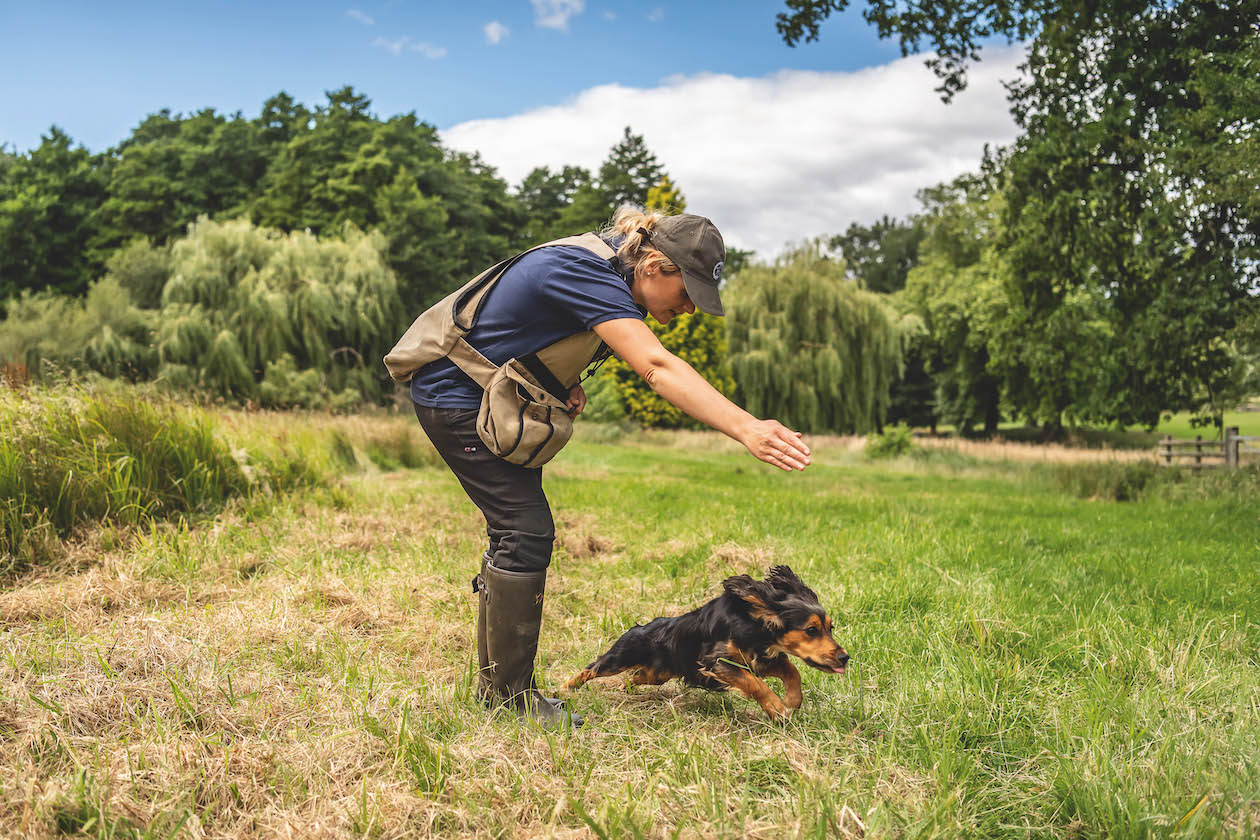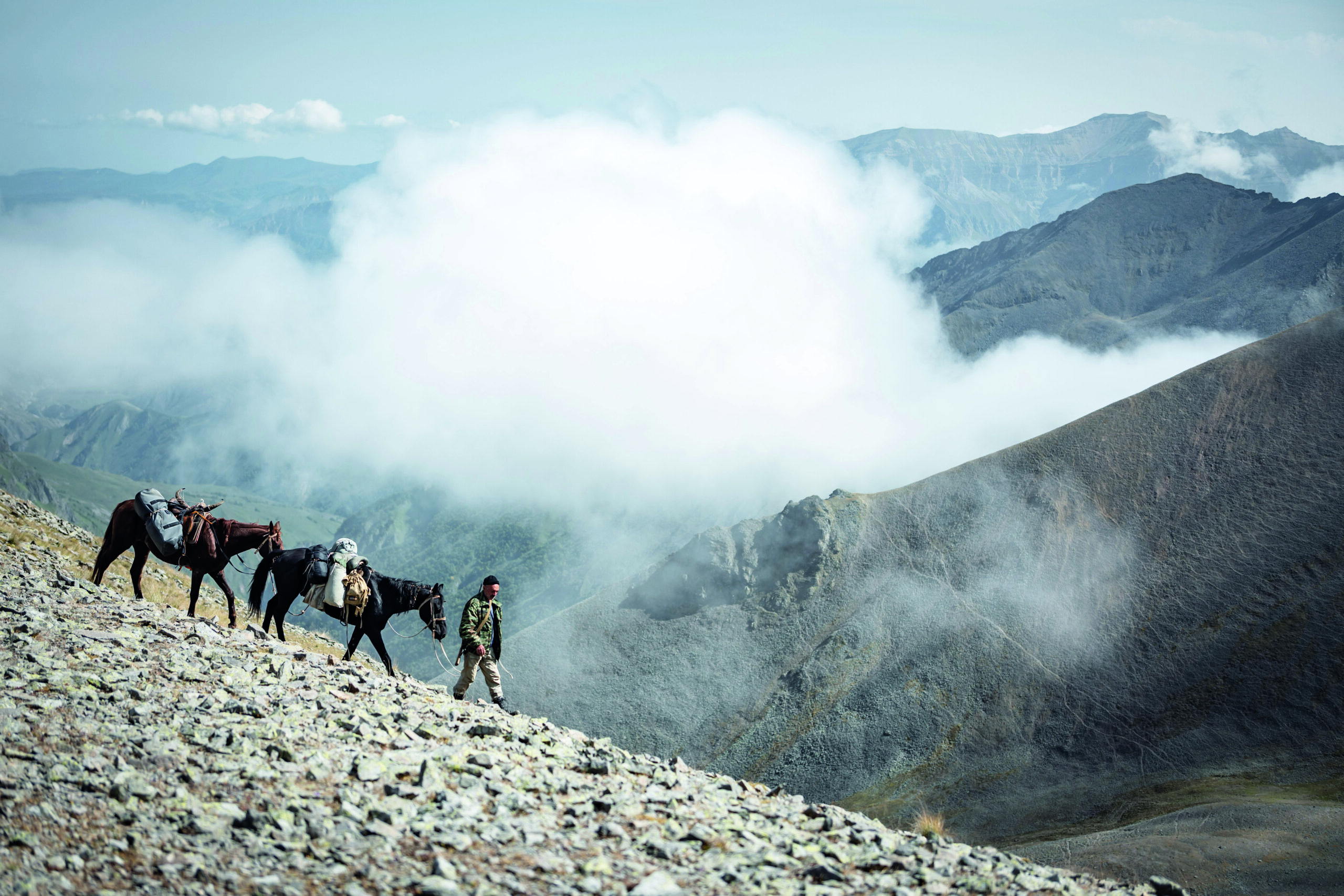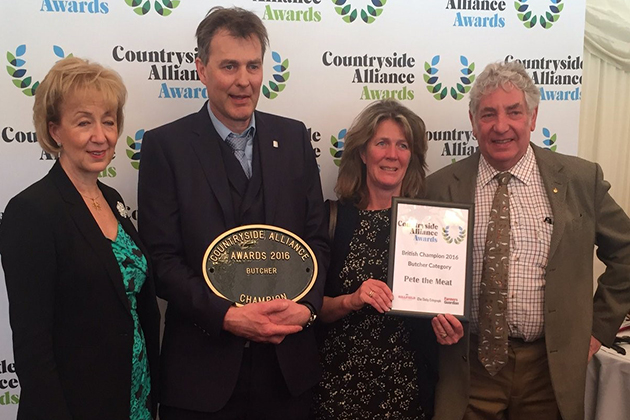Are you a natural born dog handler?
Ellena Swift insists that there is no need for owners to feel guilty if they are ill-equipped to properly train their working companion

Dog training comes naturally to some people, but many owners struggle to get to grips with any more than the basics
I work with all levels of dog handler, from first-time owners to well-seasoned competitive handlers. I often refer to other sports and use them to explain a theory or aspect of training that handlers may struggle to grasp.
Not everyone is up to being a dog handler
However, one thing that never fails to surprise me is the assumption that every single dog owner in the world makes — that they can train a dog. It may seem a ridiculous thing to say, but anyone considering getting a dog automatically assumes that they will be able to train it. With the best will in the world, anyone who works with dogs knows this is simply not the case. (Read our guide to the best slip leads.)
I have played and taken part in many sports in my life. Some I was good at and some not. But not one sport did I go into assuming I would be fantastic at it. I have never known anyone get on a horse for the first time and assume that they can ride as well as the professionals — or, at least, they haven’t kept that thought, as they fall off after 10 yards. So why do dog owners assume this?
I often get a dog handler who attends lessons and almost feels ashamed that they have had to come for help. Guilt is a common emotion I have to deal with from dog handlers in lessons. Normally, the guilt comes from their feeling of failure.
They could not get their dog to consistently recall, walk on a lead nicely or be sociable and polite with dogs or people and, because of this, they genuinely believe they have failed. Many allow their issues to run on for months, sometimes years, before seeking any form of professional help. At this point, they feel like a total failure to their dog. (Read how to teach your dog to walk at heel .)
The guilt that any dog handler feels when they have to work on something is totally unnecessary, but it can be hard to convince them of this. Imagine if I played the amazing Emma Raducanu at tennis — I would lose abysmally. It would not even be a contest. Should I come away from that game feeling guilty that I could not compete? No, obviously not. So when you are struggling to achieve the same level as the top handlers, do not be surprised if it does not come as easy as you thought, or if reaching your goal seems a million miles away.
It does not by any stretch mean that you cannot improve your level. It certainly does not mean that you should feel guilty for not being able to achieve this level immediately. To improve by any means will take time, dedication and coaching from someone more experienced or more knowledgeable than you. The first step to improving is this simple, and seemingly obvious, realisation.

One of the best things a struggling owner can do for their dog is to seek out the expert help and advice of a professional trainer
Some people are not meant for dogs
Sadly, there is a harsh reality that many dog trainers see and this is that some people were simply not meant to have dogs. That may surprise some people. Although I believe it is true, I would never turn away anyone who needed or wanted help.
If we look at a group of schoolchildren in their lessons, they will all struggle in certain areas and shine in others. Some will excel at art, but be absolutely hopeless at science. Others will find mathematics second nature, but find it hard to play a few notes on a piano. And in exactly the same way, some people are very natural at training and bonding with dogs.
They are easy to spot and quickly stand out in classes. Others have to work harder to achieve the same level, but reach it they do. And, finally, there are those who simply cannot achieve what they hoped and, no matter how hard they try, will only ever be at a very basic level — in exactly the same way my tennis level will never reach more than the average amateur, no matter how much I work at it.

Issues can be avoided by owners picking a breed of dog best suited to their sporting requirements
Forgiving
This may appear like a relatively negative article and perhaps an unwelcome opinion. However, there is a positive to be found. Firstly, dogs are fortunately very forgiving at times. They do not hold grudges and they learn by association rather than memory. This means that as you change, learn and improve, so will your dog.
So, if you are willing to approach training with an open mind and a willingness to learn, your dog will change and grow with you. The other good thing to remember is that your dog will be happy with whatever level you work them at. When a dog goes out to work, they have no idea whether it is the International Gundog League Championship or simply a day out training. And, quite frankly, they do not care.
They also do not dwell on mistakes in the way we do. At the Irish Championship, my lovely eight-year-old bitch Nala picked the wrong bird after hunting left instead of right as I had asked. She still galloped back to me with her retrieve, as proud and happy as she had ever been. So, instead of stewing over what went wrong, I look at it as an indication of what I need to work on at home.
If a handler simply desires to be able to take their dog on a shoot and have it sit quietly on peg, then pick a simple retrieve, that is fine. The dog will enjoy working towards that as much as they would working on 150-yard blind retrieves.

German shorthaired pointers live to run and have bags of stamina, so would be ideal for a keen runner
Pick a dog that suits
The other wonderful thing about dog training is that a handler can select a dog that is most likely to suit what they believe they would like to do. This means they are much more likely to achieve it.
An avid runner would suit a breed such as the German shorthaired pointer or husky that simply lives to run and has stamina to spare. Someone who would prefer slightly less vigorous activity and plenty of cuddles would suit something like a greyhound. They normally enjoy one quick, explosive run a day and then retire to a soft bed.
Selecting a dog most suited to the level and knowledge of the handler means it’s much less likely there will be issues. This often comes down to the integrity and knowledge of the breeder. I often advise people that they are not the right home for one of my puppies. Those puppies bred with competitive gundog work in mind are rarely sold to new dog owners or those who have no intention of working them. This is because I am acutely aware of the likely outcome.
So many puppies are sent back to the breeder, rehomed, sent into rescue or sold because people are simply unable to train that particular dog. Often, I do wonder what the breeder was thinking when selling a puppy to that particular home. A typical example was a well-bred labrador (all trialling lines) sold into a pet home in the middle of a city. The single mum had four children and worked full-time. It was inevitable that she would have neither the free time nor funds that the dog required.
She recognised this after a few months and contacted me. I was gifted the dog as she knew I had the contacts and knowledge to be able to place it. This dog is now one of the best free-running explosives dogs in the country. He is a phenomenal working dog.
This poor family assumed, like so many, that they were perfectly capable of training a dog and that they had the time to do so. The assumption that having a dog is easy couldn’t be further from the truth. If the owner is not a natural dog trainer, they will have to work that much harder to achieve even the most basic training.
Whether you are a natural dog handler or not, pick your battles. Set achievable goals and keep your steps small enough so you can see the progress that you are both making. Accept help and aim to better yourself in order to better your dog. One will not happen without the other. Never feel guilty that you require professional help and commit to what you want to achieve.
Those at the top of their game train harder and more than any other. One of my favourite quotes is ‘you only fail when you stop trying’. These are words to live by in so many walks of life, but none more so than gundog training.








